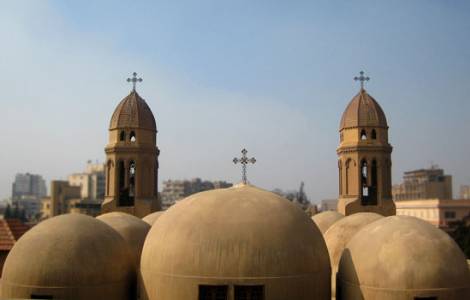
Wikipedia
Cairo (Agenzia Fides) - The new legislation on the construction of churches is a "priority" for Egyptian parliamentarians, who are engaged in last adjustments of the new legislative text containing the new provisions. This was highlighted recently by Ali Abu Al, President of the Egyptian Parliament, on the same days in which Copts parliamentarians have returned to reunite with Anba Paula, Coptic Orthodox Bishop of Tanta, to once again share impressions and suggestions on the procedure of the bill related to the construction of churches and the personal status of Christians and other religious minorities.
In Egypt, the political debate around a new draft law on the personal status of Christians and other religious minorities has intensified since 2014, when the transitional ministry of justice sent a draft of the new law also to the leaders of the different Churches and Christian communities rooted in the North African Country, with a request to submit its views on the text. The new law will also regulate the marriage law of the members of the Christian community. The other bill, one related to the construction of churches, was presented to the relevant departments of the Egyptian Parliament last May 16 (see Fides 16/05/2016). The bill - local sources consulted by Fides say - consists of 13 items, and also recognizes the right of Bishops to appeal to the State Council for delays imposed for the construction of new churches.
The new legislation should lead to total filing of the rules laid out by the "Hamayoni Decree", the law dating to the Ottoman period which is the cause of many disputes at a local level. According to these rules, the construction of Christian churches is subject to constraints that do not weigh on the construction of mosques, such as the ban on the construction of Christian places of worship close to schools, canals, government buildings, railways and residential areas. (GV) (Agenzia Fides 27/06/2016)
.